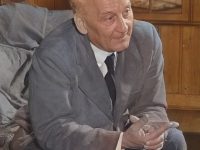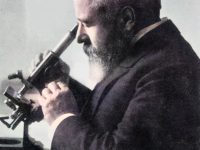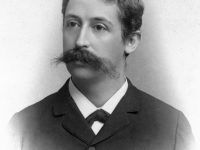Albert Szent-Györgyi and the DIscovery of Vitamin C
On September 16, 1893, Hungarian biochemist and Nobel laureate Albert Szent-Györgyi was born. Albert Szent-Györgyi is credited with discovering vitamin C and the components and reactions of the citric acid cycle. “Discovery consists of looking at the same thing as everyone else and thinking something different.” Attributed to Szent-Györgyi in: IEEE (1985) Bridging the present and the future: IEEE Professional Communication Society conference record, Williamsburg, Virginia, October 16-18, 1985. p. 14. Youth…
Read more











